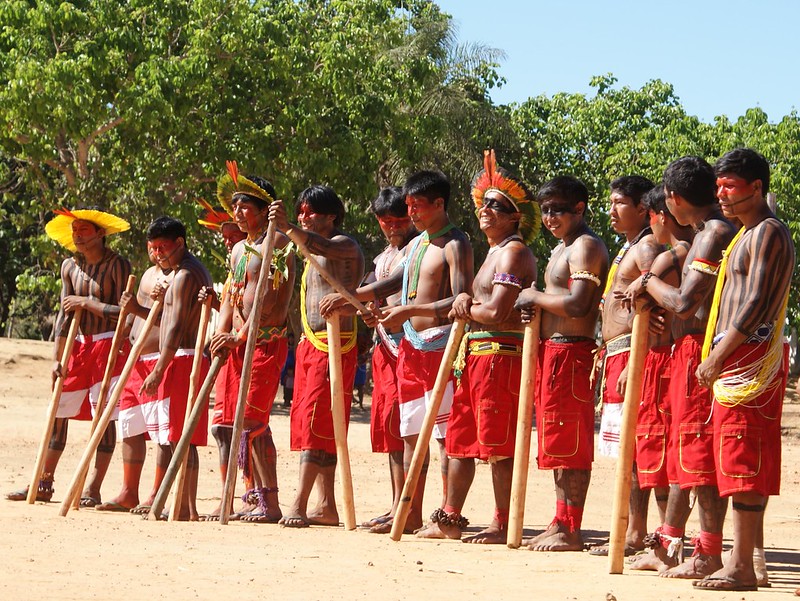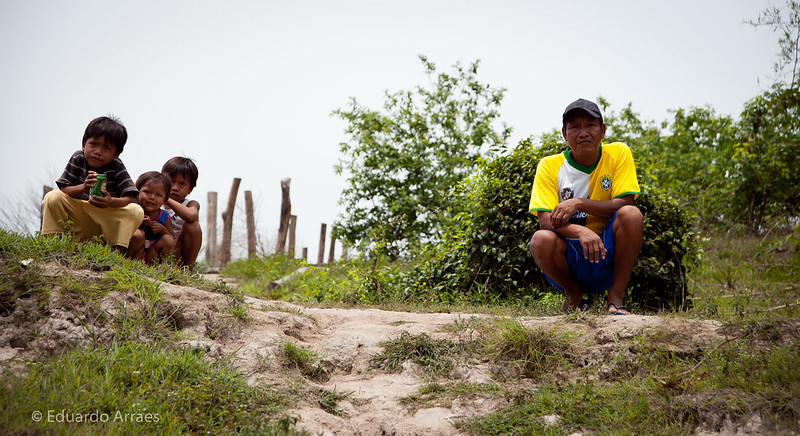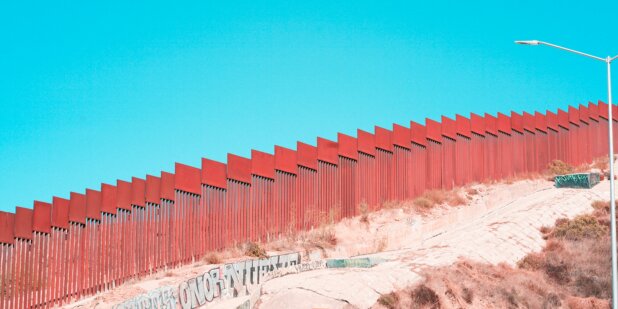- About
- Topics
- Picks
- Audio
- Story
- In-Depth
- Opinion
- News
- Donate
-
Signup for our newsletterOur Editors' Best Picks.Send
Read, Debate: Engage.
Before the arrival of Europeans, more than three million indigenous people lived in the territory of current-day Brazil. However, by 2010, only approximately 817,000 remained, according to the Brazilian Institute of Geography and Statistics (IBGE), mostly due to genocide at the hands of Europeans.
The most recent data, however, shows a slight increase in this number to 1,652,876 indigenous people of more than 300 ethnicities, a sign of the resistance. Since 1988, Brazil’s Constitution guarantees them rights to some territory and ways of life. Nonetheless, indigenous rights continue to be constantly violated.

©USAID Agency for international development
In 2023, indigenous peoples are once again preparing to face an important judicial battle. Even with the advances brought by the current government of Luiz Inácio Lula da Silva, who instituted the Ministry of Indigenous Peoples, the conservative Congress managed to diminish the power of the new bureau - as well as the Environmental Ministry - and approved the urgency for the Time Limit Trick, which will be judged by the Supreme Court to define whether indigenous lands occupied before 1988 should be demarcated.
For indigenous leader Beto Marubo, who belongs to the Vale do Javari territory, the legal concept of the temporal limit is nothing more than a "mere rhetoric of thieves of public lands wanting to create procedures beyond what is constitutional."
The legal advisor of the Articulation of Indigenous Peoples in Brazil (Apib), Maurício Terena, points out that over the years the decisions of the Supreme Court have undergone paradigmatic changes, creating new understandings, much closer to the Federal Constitution of the Republic. However, it is still a court guided by politics and economic interests.
"A court that works looking at these two dynamics, economic and political interests, does not advance as much as it could. We still have ministers saying that the indigenous person is no longer indigenous because he is already integrated into that society," he explains.
For the lawyer and president of the National Foundation of Indigenous Peoples (FUNAI), Joenia Wapichana, the main reason why the rights of indigenous peoples, especially the rights to good life and to territory, are so strongly opposed in Brazil is because there has not yet been a conclusion regarding the right to indigenous land and its regulation. Wapichana points out that the native peoples still do not have an effective system to protect their territories, which is why many conflicts regarding the dispute for land and natural resources are still so present.
"It is necessary that cases of rights violations have an efficient response. All those who think they have rights over the rights of indigenous peoples need to know that they can be held accountable," the first indigenous president of FUNAI emphasises.
Regarding the political powers, Joenia mentions that the Executive, Legislative and Judiciary branches should be working in an articulated manner, but unfortunately this does not happen.
"It is a great challenge to have a reconciliation of the separation of powers with their attributions so that there is no dispute. The challenge is precisely to bring about this approximation, to ensure that the pillars of the State, whether democracy, the environment, the rights of indigenous peoples or the discussions of our Brazilian population, are included as guiding principles so that they may be respected in all possible phases of the public powers," concluded Joenia, who has also been the first indigenous woman to become a federal deputy in Brazil, preceding Célia Xacriabá, Juliana Cardoso e Sônia Guajajara.

Despite the fact that the country is founded on native peoples, non-indigenous people still see them as strange and apart from Brazilian society. Luene Karipuna, a young fellow from the Karipuna people in the state of Amapá, northern Brazil, says she experiences this constantly.
"In various speeches of prejudice, of racism, we always notice that people say they are Brazilian citizens, as if we were not. It is a feeling that we share in all spaces. If we are seen in the mall with our accessories, with our bracelets, or on a plane with our headdress or our necklace, we receive different looks. Even indigenous lands are seen as something apart, as if they were a separate State," says Karipuna.
Karipuna is part of a network of communicators at the Coordination of Indigenous Organizations of the Brazilian Amazon (Coiab) and bets on communication as a strategy to dialogue with non-indigenous society and make them understand and respect the reality of indigenous peoples.
"I believe that information is one of the starting points so that people can approach and help the indigenous cause, understanding our diversity, understanding the importance of the peoples and respecting this diversity as well. It's not enough just to understand, if you can't respect the way of life of these peoples who are different. We need to reaffirm our differences so that we are respected."
Indigenous leader Vanda Witoto, who lives in the state of Amazonas, stresses that the history of the country has been usurped and that, despite the fact that the indigenous people are the protagonists of the construction of all the diversity of the state, colonisation tried to erase and destroy any trace of this memory.
"The formative process of this country places us as enemies of progress, of this highly destructive progress. Education goes through a history that denies our existence, that places us at the margin of a whole cultural process and of existence in this country, denies us the right to exist," says Witoto, who experienced prejudice and violence in her own life when she worked as a maid for eight years in a family home in Manaus, Amazonas.
She takes from this experience the struggle for the participation of women in spaces of power and decision making. "Having indigenous women occupying spaces of leadership is a great advance in the face of a history of marginalisation of women's bodies. Political structures and spaces of power need and require women's voices because an entire social construction starts from the life principle of women."
Change begins in childhood. For future generations to advance, the indigenous activist André Baniwa, director of the territorial demarcation department at the Ministry of Indigenous Peoples, points out the importance of indigenous peoples having gained access to specific and differentiated education organised with the participation of indigenous peoples.
Nevertheless, he stresses that this is only the beginning.
"It is still necessary to create a national indigenous school education system of its own, a network of federal and state indigenous schools. An indigenous university [is also] in the discourse of the movement, with several campuses throughout the country," says Baniwa.
Beto Marubo, André Baniwa, Luene Karipuna and Vanda Witoto share the same dreams of building a dialogue and of Brazil recognising the importance of indigenous peoples for the country, with their cultural relevance and economic and political role.
The leaders summed up their objectives by saying that they dream of not having to justify their own existence. "We are in a great movement to raise awareness among non-indigenous people to contribute to the struggle of our peoples, to use their spaces of privilege in defence of the struggle of indigenous peoples, promoting respect for life and our cultures," they conclude.
This article has been edited by Ellen Nemitz.
